Femia > Health Library > Your cycle > Health > How to balance your hormones in a week: Natural strategies for quick results
How to balance your hormones in a week: Natural strategies for quick results
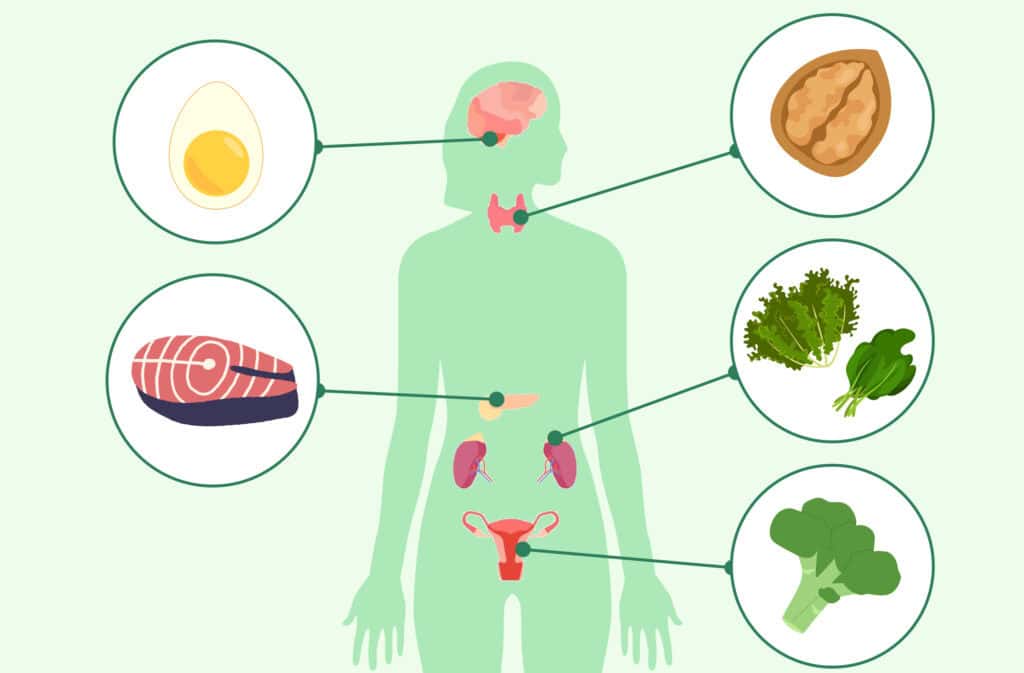
- Updated Feb 10, 2025
- Published
CRAFTED BY HUMAN
Crafted by human At Femia, we provide accurate and up-to-date information at every stage of your journey, from trying to conceive, pregnancy and postnatal support. All content is created by a real person based on in-depth research and own professional experience. Femia ensures that you will receive expert advice, strict accuracy and a personalized approach from our authors/medical experts. Learn more about our editorial policy.
FACT CHECKED
Fact checked At Femia Health, we maintain the highest standards of editorial excellence in delivering content focused on helping you conceive, guiding you through pregnancy, and supporting you postpartum. Explore our content review principles to learn how we ensure the accuracy and quality of our health and lifestyle tips for every stage of your journey.
- Balancing hormones naturally in a short time requires a combination of lifestyle and dietary changes.
- Foods like eggs, spinach and leafy greens, walnuts, lentils, flax seeds, chia seeds, pumpkin seeds, sunflower seeds, vegetable and sunflower oil, meat, and fatty fish like mackerel, sardines, and salmon support hormone production and regulation. Regularly taking these foods in moderation can help balance hormones within a week.
- Engaging in moderate-intensity exercises, like walking, yoga, and some strength training exercises, like weight lifting, squats, and push-ups, enhances blood flow to the organs and improves mood, insulin sensitivity, and hormone balance. Exercising for 30 minutes daily and practicing different yoga poses two to three times a week is recommended.
Hormones are essential chemicals produced by the glands in our body. They regulate various body functions, like general growth and development, metabolism, mood, reproductive cycle, and sexual functions. That means hormonal imbalance can impact your overall health, affecting your energy, mood, sexual functions, and more.
Luckily, making small changes in your lifestyle, particularly diet, can help improve hormonal imbalance within a short period of time without requiring long-term medication treatment. Let’s discuss the natural strategies for how to balance your hormones in a week.
Try Femia’s plan that helps remove your blocks to get pregnant
Why hormones need balance and common symptoms of imbalance
Our body’s glands, organs, and tissues make nearly 50 different hormones, and all are responsible for important bodily functions. For example, our pineal gland, located in the brain, releases a hormone called melatonin, responsible for controlling our sleep-wake cycle. Similarly, our thyroid gland, located at the front of our neck, releases T3 and T4 hormones, which regulate our body’s metabolism, heart rate, growth, and energy levels.
Hormones must be balanced as they regulate many aspects of our health, including metabolism, reproduction, blood sugar, growth, sleep cycle, and many other body functions.
A hormonal imbalance can disrupt the functions of the body, leading to health issues, like diabetes, sleep disturbances, infertility, and elevated cholesterol or heart disease.
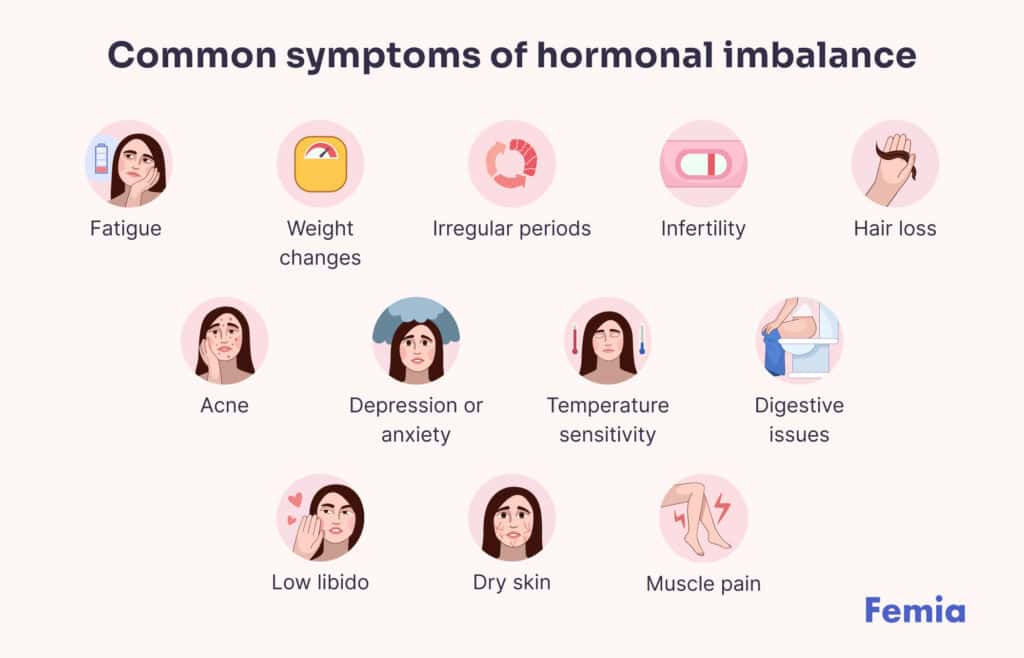
Some common symptoms of hormonal imbalance include:
- Fatigue
- Weight loss or weight gain
- Irregular periods
- Not being able to conceive
- Hair loss
- Acne
- Depression or anxiety
- Inability to tolerate cold or warm temperatures
- Diarrhea, constipation, frequent bowel movements or urination
- Decreased sex drive
- Dry skin
- Muscle stiffness, aches, or tenderness
👉Find out more: Fertility hormones: Essential female reproductive hormones and how to balance them for conception
How to balance your hormones in a week: Diet tips
So, how to naturally balance hormones? To balance your hormones naturally in a week, one of the major recommendations is to focus on your diet.
Maintaining a diet that contains nutrient and vitamin-rich foods that support hormonal production, reduce inflammation, and regulate blood sugar levels can help you balance your hormones naturally.
In addition, avoid foods that disrupt insulin sensitivity and increase inflammation and oxidative stress, like processed meat, high sugar, and high-carb foods, as they can gradually worsen or lead to hormonal imbalance.
Here are common foods that help in balancing hormones naturally:
1. Omega-6 rich foods
Omega-6 is the essential fatty acid that our body needs for the development and normal growth of the body and reproductive system. They are primarily found in nuts, seeds, and certain oils. Omega 6 fatty acids help improve hormonal systems for both men and women. They increase blood flow to the genitals and reproductive organs.
To incorporate omega-6 into your diet, you can use corn oil, sunflower oil, and vegetable oil instead of butter while cooking. You can have walnuts or Brazil nuts for snacks instead of chips as they are another rich source of omega-6 fatty acids. Other ways to add omega-6 to your diet include eating eggs daily and consuming one to two tablespoons of mixed seeds, including pumpkin, sunflower, and flax seeds.
Some more sources of omega-6 fatty acids include:
- Peanut butter
- Mayonnaise
- Legumes
- Fish
- Meat
- Avocado oil
- Soybeans
Eating these foods in moderation can help you support hormone production and regulation.
2. Omega-3 rich foods
Omega-3 is another type of essential fatty acid that you should add to your diet as the body doesn’t make it. Omega-3 supports heart health and has anti-inflammatory properties, which help enhance the functions of healthy hormones.
Omega-3 fatty acids are found in dark green leafy vegetables, flaxseed, chia seeds, walnuts, and fatty fish like mackerel, sardines, and salmon.
You can add omega-3-rich foods to your diet by:
- Eating an omelet with one tablespoon of walnuts for breakfast.
- Having grilled salmon with veggies and quinoa for lunch.
- Enjoying chia seed pudding with flax seeds for snacks.
- Having grilled chicken breast with spinach and walnuts for dinner.
3. Protein-rich foods
Proteins are made of amino acids, and eating protein-rich foods helps provide the body with essential amino acids that they can’t make on their own. The endocrine gland makes peptide hormones from amino acids involved in cell growth, energy metabolism, and reproductive, gastrointestinal, and cardiac functions. Hence, taking protein-rich foods helps improve the production and function of peptide hormones.
Protein-rich foods include:
- Eggs
- Chicken breasts. They are high in protein, help in muscle building, and enhance hormones like estrogen and insulin.
- Leafy greens like spinach are another protein source that balances estrogen levels and hormonal equilibrium.
- Fatty fish improves vitamin D levels and hormonal communication, enhancing overall health.
- Lentils
4. Fiber-rich foods
Fiber-rich foods are an excellent probiotic that stabilizes blood sugar levels and reduces cortisol levels, which helps in hormonal balance.
Fiber-rich foods include:
- Raspberry
- Apple
- Black beans
- Brown rice
- Barley
- Almonds
- Grains
- Brussels sprouts
- Oats
- Broccoli
- Chickpeas
Lifestyle changes to naturally balance hormones
Other than diet, some lifestyle changes, like engaging in regular moderate-intensity exercise, can help balance your hormones naturally. Exercise improves insulin sensitivity and helps in balancing hormones.
The role of exercise in hormonal balance
High insulin levels can cause your ovaries to produce excessive hormones, like testosterone, which can cause symptoms like acne and hair growth. By improving insulin sensitivity, exercise helps in balancing hormones.
Exercise also activates the endocrine system, improving the production of hormones like estrogen, serotonin, cortisol, human growth hormone, adrenaline, and insulin, enhancing overall body functions. Physical activity or exercise increases the release of feel-good hormones, which helps boost overall mood, sexual drive, appetite, and digestion.
Common exercises that help in balancing hormones
Moderate-intensity exercise, like walking, jogging, yoga, and resistance training, help balance overall weight, insulin sensitivity, blood flow, and hormonal production.
- Walking. Walking is the simplest form of exercise that offers numerous benefits. It increases estrogen and progesterone balance in women, improves sleep quality and insulin sensitivity, and reduces cortisol (stress hormones) levels. The combined benefits of walking help in maintaining hormonal balance. Engaging in 30 minutes of moderate-intensity walking daily is ideal to ensure your overall health.
- Yoga. It is another mild to moderate-intensity exercise that improves your body’s balance, strength, and flexibility. Yoga relaxes your body and mind and improves blood flow to the endocrine glands, which support hormonal balance and production.
Common yoga poses that help with hormonal balance include:
- Downward-facing dog
- Savasana
- Child’s pose
- Seated forward fold
- Cobra pose
- Restorative yoga
- Yoga Nidra
- Cobra pose
It is ideal to start slow and gradually increase the intensity of your yoga poses. It’s recommended to engage in yoga at least 2-3 times a week. Combining yoga with exercise and a healthy diet can help you balance hormones.
- Resistance training Resistance training exercises can help balance hormones by reducing fat storage and increasing lean muscle mass, promoting a healthy hormonal environment.
The following resistance training exercises help stimulate the production of growth hormones and testosterone:
- Weight lifting
- Squats
- Crunches
- Lunges
- Push-ups and pull-ups
- Resistance band workouts
How to fix hormonal imbalance with sleep
As we all know, our body needs adequate sleep to repair muscles and release the hormones that maintain the sleep-wake cycle, growth, and digestion.
Sleep deprivation or inadequate sleep can disturb the body’s internal clock, which controls the release of hormones. It can also reduce melatonin production, a hormone released at night to manage the sleep-wake cycle.
Hence, adequate sleep at night – eight hours for most people – is crucial. It aligns with the natural circadian rhythm and supports hormone regulation and melatonin production.
Tips for establishing a consistent sleep routine
So, how to control hormonal imbalance with sleep?
- Exercise regularly for at least half an hour. Exercise engages your muscles, improves blood flow to the organs, and releases serotonin (a mood-boosting hormone), which helps promote quality sleep.
- Limit screen time before sleep, as the blue light emitted by electronic screens can disturb the body’s production of melatonin. Try turning off all your electronic devices one or two hours before sleep.
- Plan your next day the night before and wake up early in the morning. When you wake up early and follow a full-day schedule, you will feel tired at night and sleep more soundly.
- Create a sound and comfortable sleep environment. Turn off all the lights and maintain a cool and quiet atmosphere in your room.
- Avoid taking caffeine, alcohol, and other stimulants at night.
4 Stress management techniques to control hormonal fluctuations
When we are constantly under stress, our body releases the cortisol hormone, which regulates our body’s stress response.
The release of cortisol triggers glucose production from the liver, which increases blood sugar levels. If stress remains persistent, hormonal levels also rise, leading to hormonal imbalance.
How to fix hormonal imbalance by managing stress
Here are some stress management techniques to control hormonal fluctuations:
1. Relaxation
Relaxation techniques, like taking a few deep breaths, engaging in meditation, or changing your environment, like going out in nature or meeting a close friend, are great ways to overcome stress and prevent the hormonal imbalance from persistent stress.
2. Engage in fun activities
Other ways to manage stress are taking breaks from work, rewarding yourself for completing small tasks, and engaging in the activities you enjoy the most. It could be swimming, hiking, shopping, or dining out with friends.
3. Get good quality sleep
Sleep relaxes and freshens up your body and mind. Getting good quality sleep by minimizing all the disturbances around you is another way to reduce stress and relax yourself.
4. Try out new hobbies
Apart from engaging in activities you like, try out new hobbies that relieve stress, like painting, sketching, drawing, stitching, gardening, baking, cooking, or others. It will take your mind off the stress and engage you in something productive, relaxing, and fun.
How to regulate hormones after birth control
Using birth control may disturb your hormones for a short period of time, but they return to normal a few days after stopping the contraceptives.
In addition, there are some natural methods that can help maintain your hormonal balance. So, how to regulate hormones after birth control? Balancing hormones after birth control also requires the same lifestyle and dietary improvements we discussed, including:
- Eating enough proteins, healthy fats, and fiber. Proteins provide amino acids to your body, which help produce peptide hormones. Healthy fats and fiber improve your gut health and regulate insulin hormones, appetite, and metabolism, balancing your body’s overall hormones. Add fish, eggs, fruits, vegetables, whole grains, and seeds to your daily routine.
- Maintain a healthy weight with 30 minutes of daily exercise. Obesity can affect your ovulation, so it is essential to engage in physical activity.
- Reduce your sugar intake. Excessive sugar in your diet increases the risk of insulin resistance, which can affect your hormones. Avoid consuming too much junk food, drinking too many soft drinks, and gorging on baked goods like biscuits, cakes, pastries, and other sugary foods.
- After consulting a healthcare provider, include vitamin B and omega-3 supplements in your routine. They can help restore nutrients in your body, regulate hormonal balance, and reduce deficiencies.
Sometimes, because of our busy schedules and lack of time, it can be difficult to get all the nutrients that we should from our diet; hence, supplements help fulfill our body’s nutritional requirements and hormonal deficiencies.
👉Find out more: Signs of ovulation after stopping taking birth control pills
Supplements that help with hormonal imbalance
The primary supplements that help balance hormones include omega 3s, magnesium, ashwagandha, and vitamins B and D.
- Vitamin D improves the production of fertility hormones like testosterone and estrogen and supports bone health and immune function. You can get a vitamin D blood test done to check whether you have a vitamin D deficiency interfering with your hormonal balance. If you are vitamin D deficient, it is best to start a supplement after consulting your healthcare provider.
- Ashwagandha is a medicinal herb that is used as an adaptogen. It helps regulate the body’s stress response, anxiety, and fatigue, improving overall well-being. The medicinal herb can help with hormonal balance by improving the body’s stress response.
- Magnesium activates enzymes and controls many enzymatic reactions, including hormonal regulation and production. It also keeps the bones strong, controls blood sugar levels, maintains normal muscle and nerve function, and helps in the production of protein and energy.
It’s a good idea to consult your healthcare provider before you start certain supplements as they can guide you based on your individualized condition and body deficiencies.
Try Femia’s plan that helps remove your blocks to get pregnant
Questions from the Femia community
Can I see results from hormone-balancing changes within a week?
Yes, if you regularly focus on maintaining a nutrient-rich diet, exercise daily, get adequate sleep at night, and practice techniques to reduce stress, you may already notice changes in your energy, mood, and digestion within a week arising from your more balanced hormone levels. However, results will only appear after consistent effort.
Will balancing hormones help me with my menstrual cycle regularity?
Yes. Hormones regulate every phase of our menstrual cycle, from ovulation to uterine bleeding, and hormonal imbalance can disrupt the menstrual cycle, leading to irregular or missing periods. Balancing hormones can help restore normal and regular menstrual cycles.
How does balancing blood sugar impact my hormone levels?
Insulin is a hormone released to control sugar levels when your blood sugar is high. High blood sugar levels continuously increase insulin production, which can cause insulin resistance. High insulin levels also stimulate the release of excessive testosterone hormones from the ovaries, which can cause disorders like PCOS and hormonal imbalance. A balanced blood sugar level helps prevent insulin resistance and hormonal imbalance.
Can certain types of exercise negatively impact my hormone balance?
Yes, intense exercise without adequate recovery, nutrition, and caloric intake can negatively impact your cycle hormonal balance and increase the stress hormone cortisol’s production.
The bottom line
Balancing hormones naturally is a gradual process that requires consistent effort and changes in your diet, daily routine, and lifestyle. To ensure consistency, you can make a weekly exercise and diet plan and incorporate fibrous, protein-rich, and omega-3 foods in different parts of your meals.
The best foods for hormonal balance include nuts (especially walnuts and almonds), eggs, leafy greens, sesame, pumpkin, and sunflower seeds, fatty fish, and whole grains.
Moreover, vitamin B, vitamin D, magnesium, and omega-3 supplements work best to support your overall health and hormonal production and equilibrium. However, it is best to consult a healthcare provider to confirm which supplements you should start based on your condition.
Remember, small changes in your mood, energy, and overall wellness indicate that your hormone levels have started to improve, so being consistent in your routine is the key to further maintaining and supporting hormonal balance.
References
- “Hormonal Imbalance.” Cleveland Clinic, 18 Oct. 2024, my.clevelandclinic.org/health/diseases/22673-hormonal-imbalance.
- Healthdirect Australia. “Hormonal System.” What It Is and How It Works | Healthdirect, www.google.com/amp/s/www.healthdirect.gov.au/amp/article/hormonal-system-endocrine.
- “How Omega-6 Fatty Acids Affect the Heart.” Mayo Clinic, www.mayoclinic.org/diseases-conditions/heart-disease/expert-answers/omega-6/faq-20058172.
- “Cortisol.” Cleveland Clinic, 1 May 2024, my.clevelandclinic.org/health/articles/22187-cortisol.
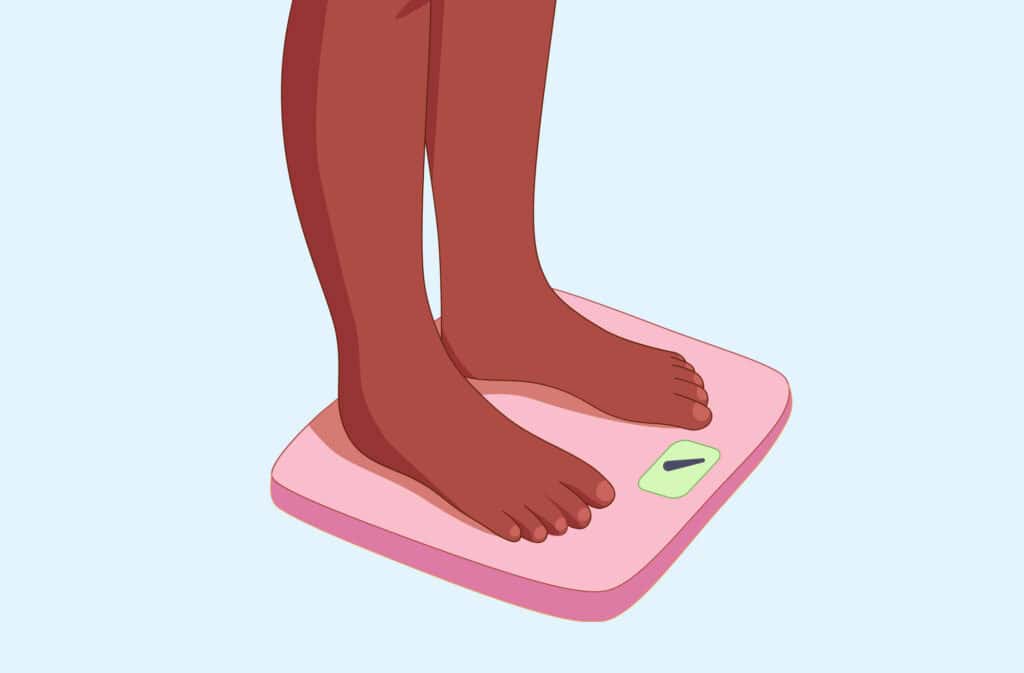
Is it normal to lose weight during pregnancy? Discover the causes of weight loss during pregnancy, when to consult a doctor, and how to ensure you and your baby stay healthy.
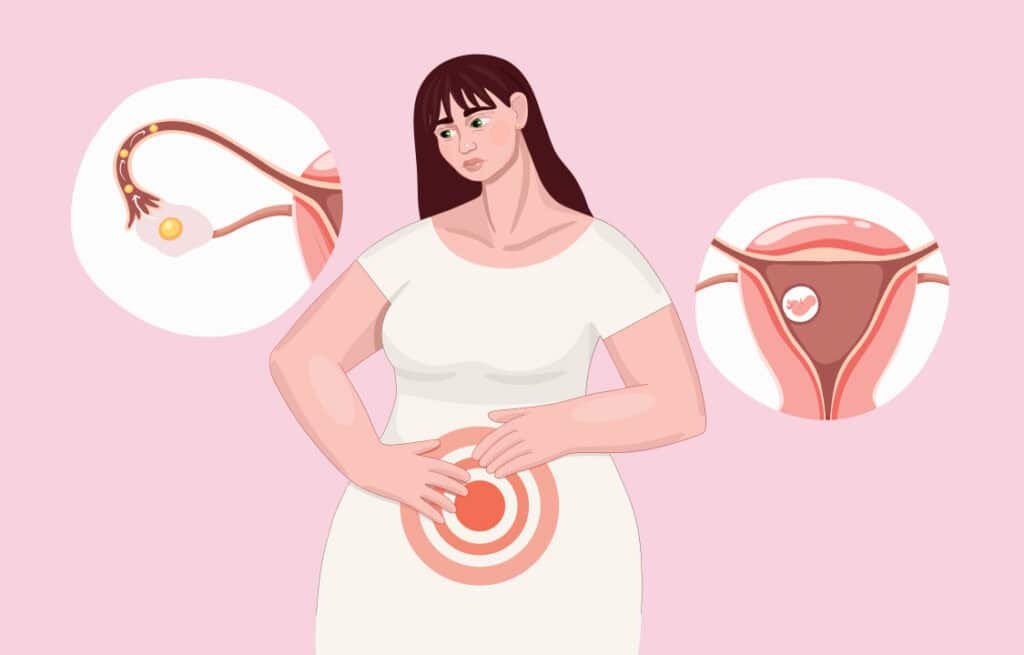
Learn how ovulation and implantation cramps differ in timing, spotting and pain.
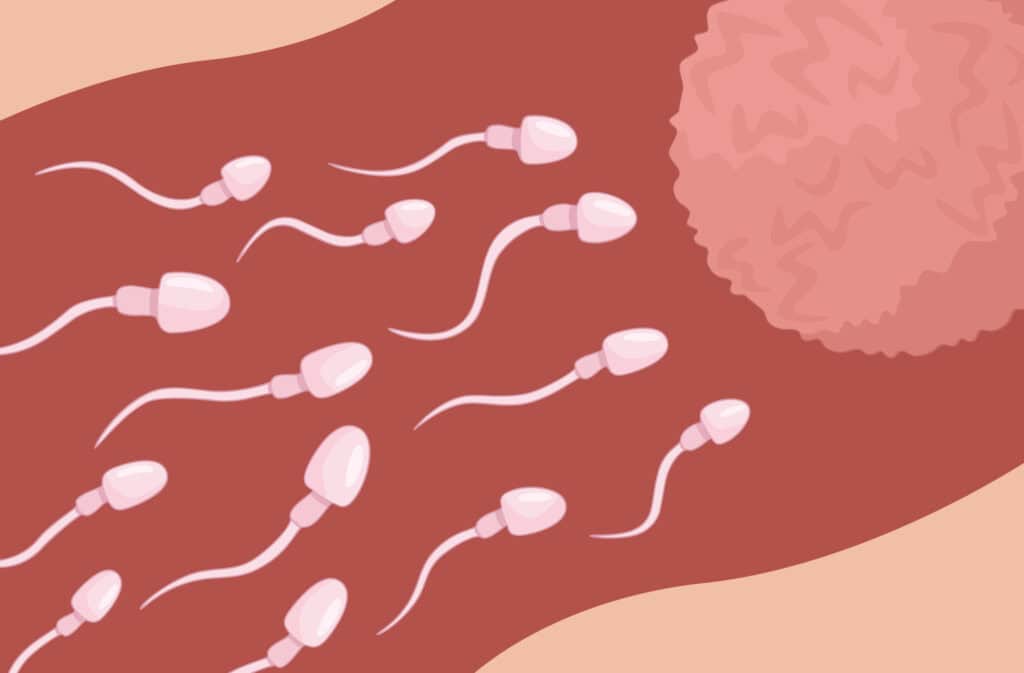
Let’s learn how long does it take for sperm to reach an egg, when implantation happens and factors affecting the speed.

